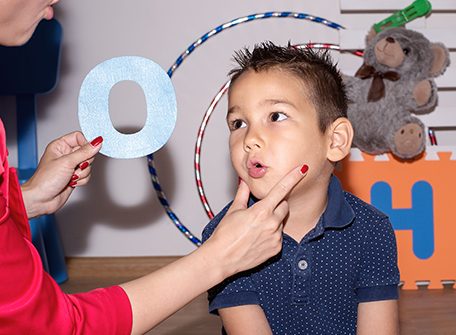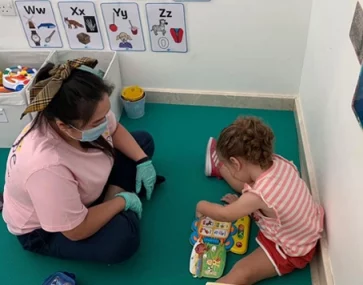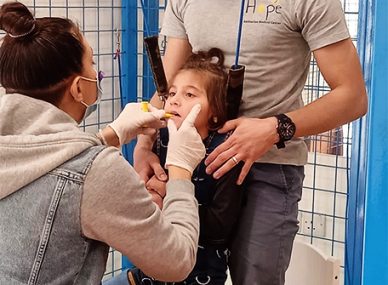A child with autism spectrum disorder might show signs and symptoms before they’re three. Early signs of autism can include language delays and speech problems in 18-month-olds.
Early intervention is necessary in such cases. Communication and social skills can be improved through speech therapy for autism.
Asperger’s syndrome (ASD) is a broad term that covers a range of social and communication problems. Children and adults on the autism spectrum can face different challenges.
Speech Therapy for Autism: Why Is It Necessary?
There’s a neurodevelopmental disorder called Autism Spectrum Disorder. As a result, it’s incurable. For ASD, intensive therapy like speech therapy helps make up for any communication deficits.
Autistic People May Face These Challenges:
- You might not be able to hear them
- Communication may be limited to cries, grunts, shrieks, or throaty noises
- It might sound monotonous or inexpressive
- There’s a chance they’ll use foreign words and sound robotic
- Sing-song voice or hum may be all they can do
- It’s possible they babble and make sounds like words
- Social interactions and conversation skills (maintaining eye contact and using gestures) may be hard for them.
- They might have trouble understanding social cues and communication
- Having trouble understanding phrases
- Using common words in a new context might confuse them
When it comes to improving communication skills, speech therapy is one of the most effective ways.
Autism speech therapy improves communication skills in preschoolers.
How Do Speech-Language Pathologists Help With Autism?
Language and speech disorders are treated by speech-language pathologists (SLPs). SLPs sometimes help diagnose autism in preschoolers and refer them to specialists.
SLPs help identify autism early. Speech therapists can evaluate the child’s communication after diagnosis. Additionally, they suggest speech therapy techniques for autism that might help.
The SLP works closely with the client, their family, and other professionals. Educating the parents and caregivers of the child about speech therapy for autism at home is their responsibility.
If the kid isn’t able to speak, the therapist can suggest other options. Using software or devices that convert text into speech can be used as part of speech therapy for non-verbal autism.
Autism Speech Development Therapy: What Are The Benefits?
Children with autism can benefit from speech therapy. Children may learn how to establish relationships, hold social interactions, and function in everyday life.
SLPs and speech therapists can help people on the spectrum with –
Speech Fluency
Autism spectrum kids are more likely to stutter. There can be repetitions, blocks, and prolongations in stuttering.
An autistic person who stutters can benefit from speech therapy. Fluency shaping techniques make it easy to improve fluency.
Speech therapy can help children with frequent speech blocks who suffer from speech disorders. Speech disorders in children can improve their speech with speech modification techniques from SLPs.
Articulation Skills
A speech-language pathologist can help you understand how your tongue, palate, jaw, and lips work. The smoothness of speech depends on how well the articulators move.
A therapist can help a kid who has trouble speaking due to a lack of coordination between their articulators learn new sounds or sound patterns. Conversations can be easier when they’re more intelligible.
Communication
Communicating means understanding how to interact with others, and how to use language socially. Using approaches like Hanen and Intensive Interactio n Interaction, we help parents/careers and educators help kids develop these skills in natural ways. Children can also develop spontaneous, intentional communication with AAC, such as PECS (Picture Exchange Communication System). Using approaches like Social Thinking and Zones of Regulation, we help kids understand our social world. Our group interventions help kids develop a wide range of social skills through play, like Lego Therapy.
Feeding
Eating and drinking are part of feeding. Oral motor strategies are often used to promote breathing, sucking, swallowing, and chewing muscle function.
You can reach us by dialing the numbers on our website. Make an appointment with the Pediatric Speech Therapist today.




